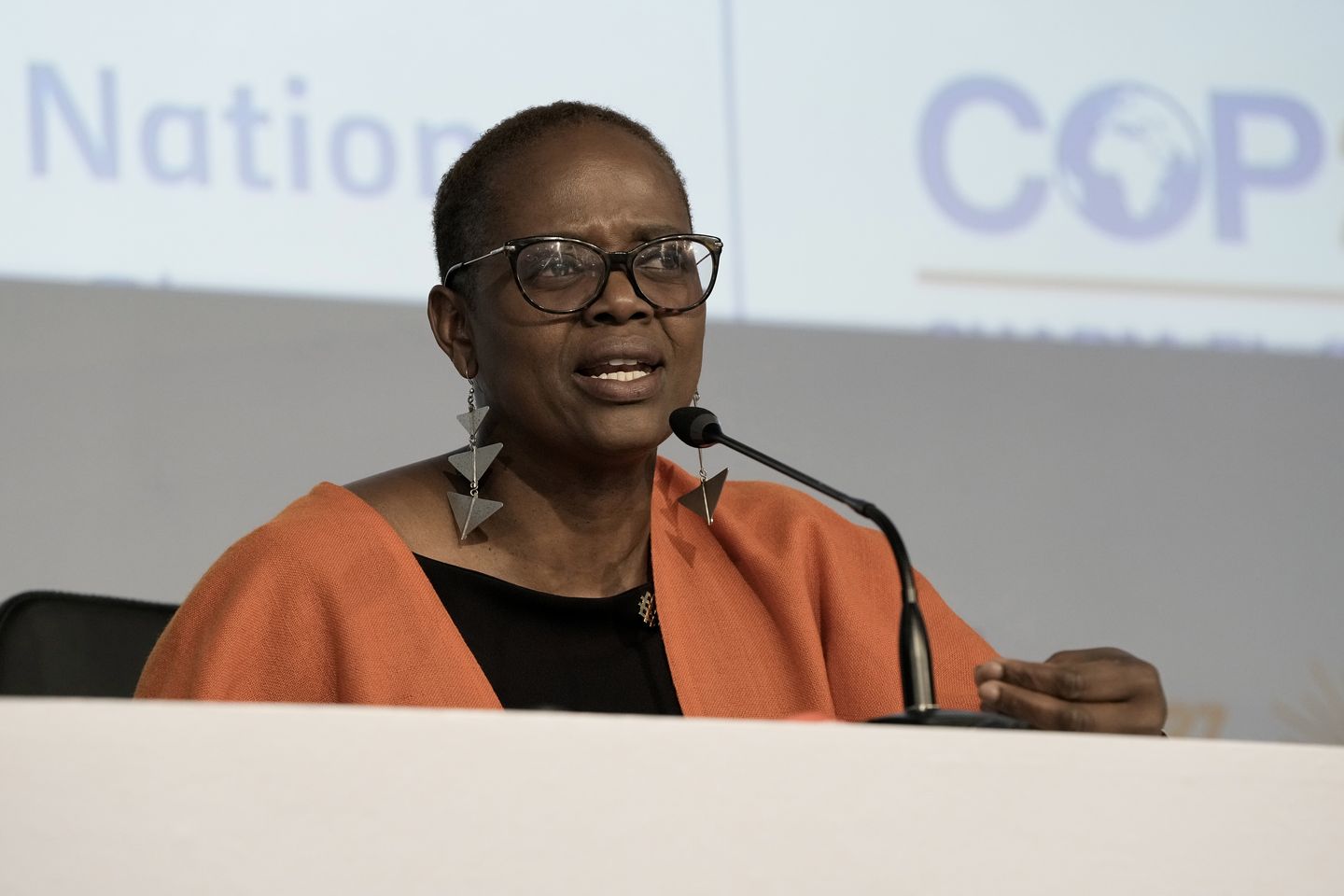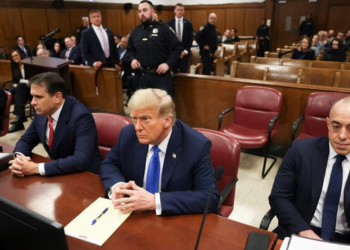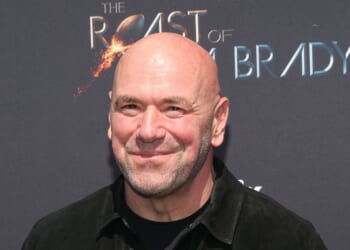
SEOUL, South Korea — Three problem-solvers who are creatively and successfully tackling some of the world’s biggest challenges were awarded the sixth Sunhak Peace Prize in Seoul on Friday.
The laureates were: Wanjira Mathai of Kenya, chair of the Green Belt Movement and African regional director of the World Resources Institute; Hugh Evans of Australia, co-founder and CEO of Global Citizen; and Patrick Awuah of Ghana, founder of Ashesi University.
The winners were honored for having designed creative and sustainable solutions to battling the world’s problems. The three international leaders have each made “outstanding contributions in the areas of environmental protection and restoration, global citizen solidarity and ethical educational innovation,” organizers said.
Additionally, two Founder’s Prizes were awarded during the ceremony, whose theme this year was “Innovation for Peace.”
The honorees were former Nigerian President Goodluck Jonathan and Prophet Samuel Radebe of South Africa, leader of Spiritual Revelation Home.
Each awardee was presented with a $200,000 cash prize, a medal and a plaque.
The achievements honored Friday all demanded “an investment of time, energy and creativity, guided by moral and spiritual vision,” and required “courage, resolve and conviction,” said Peace Prize Chairman Thomas Walsh.
Timor-Leste President Xanana Gusmao also had been named a Founder’s Prize honoree, but was unable to attend. The presentation of the award to the former freedom fighter, prisoner of conscience and peacemaker was postponed, organizers said.
Friday’s ceremony was a hybrid event synching global digital outreach with the event held at Seoul’s giant Lotte World Hotel complex. Sunhak Peace Prize Founder Dr. Hak Ja Han Moon took the stage to a standing ovation and was photographed with the honorees.
Ms. Mathai has created a model for sustainable development across Africa. Recognizing that multiple conflicts center around resources, including natural resources, she said, “Restoration of the environment should be seen as an act of peace and peace building.”
Through the Green Belt Movement, she has facilitated the planting of more than 51 million trees, addressing deforestation and soil erosion Africa-wide while empowering communities.
Her leadership in the African Forest Landscape Restoration Initiative aims to restore 250 million acres of degraded land by 2030 to combat climate change.
Ms. Mathai’s actions work to harmonize sustainability with community development and prosperity with ecological balance. African women’s “response to the green belt movement was a fantastic intersection of women’s rights and the environment coming together,” she said.
Mr. Evans has pioneered a platform and mobilized a global movement to address poverty, inequality and environmental degradation.
Global Citizen has galvanized collective action, securing more than $43 billion to improve the lives of more than 1.3 billion people worldwide. By leveraging digital platforms to inspire action, he has redefined global citizenship, demonstrating the potential of unity, organizers said.
Supporters and collaborators include entertainers Beyonce, BTS, Coldplay and Stevie Wonder, as well as political figures including former first lady Michelle Obama and former President Biden.
Mr. Evans said he was shocked by the poverty he witnessed in the Philippines and South Africa during his youth – and inspired by Nelson Mandela’s call to end it. “Mandela’s vision has been my North Star,” he told attendees.
“Overcoming poverty is not a gesture of charity but an act of justice,” Mr. Evans said. “Like slavery and apartheid, it is not natural: It can be overcome and eradicated.”
Having benefited from a U.S. education and work experience in Silicon Valley, Mr. Awuah returned to Ghana in his mid-30s to establish Ashesi (“Beginning”) University.
The college blends technological education with ethical behaviors. The aim: Graduate scholars who are critical but compassionate thinkers, capable of battling poverty, corruption and inequality.
The student body represents more than 30 nations and is 50% female.
Mr. Awuah shared a story of how Ashesi students were invited to overcome conflicts seething in a refugee camp. After they taught micro business management, past enmities evaporated as formerly hostile refugees cooperated to achieve successful business outcomes. Ethics are baked into Ashesi. Students are so trusted with an honor code that exams are not supervised.
“Think about the human mind … part is intellect, part is morality, and both can be nurtured through education,” Mr. Awuah said. “If we change the mindset of leaders, we can change our continent.”
All awardees embody a three-point philosophy put forth by Mr. Awuah: The power of shared purpose; the discovery of that purpose, which can lead humans to greatness; and the importance of giving humans tools and resources to earn dignity, to achieve and to create.
Mr. Jonathan was cited for his contributions to democratic development: He conceded the 2015 presidential election, enabling Nigeria’s first peaceful transfer of power. “No background is too modest for service on the path to peace,” he said.
His award money, he said, would be invested in his own foundation, which supports “peaceful political transition and conflict resolution across the African continent.”
Prophet Radebe was honored for his contribution to promoting inter-religious cooperation and peace. Individuals who embrace spiritually can “be the best version of themselves,” he said, adding that spiritual unity must overcome religious discord.
“Political power alone cannot solve all of humanity’s problems,” he said. “Only when spirituality awakens can lasting peace be achieved.”
Branded “making the world better for future generations,” the Sunhak Peace Prize is given biennially to individuals and organizations that contribute to global peace.
“Sunhak” is a portmanteau of the names of the late Rev. Sun Myung Moon, and his wife, Mrs. Moon.
Mr. Moon founded the Unification Church in 1954. It grew from a tiny, embattled church in South Korea to a global spiritual movement and an affiliated commercial empire comprising real estate, manufacturing and agricultural operations, as well as media properties including The Washington Times.
The prize was established in 2013 by Mrs. Moon to honor and advance the peacemaking leadership of her husband, who died in 2012. The first laureates were named in 2015.












